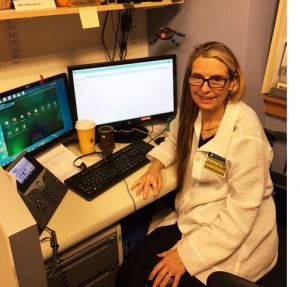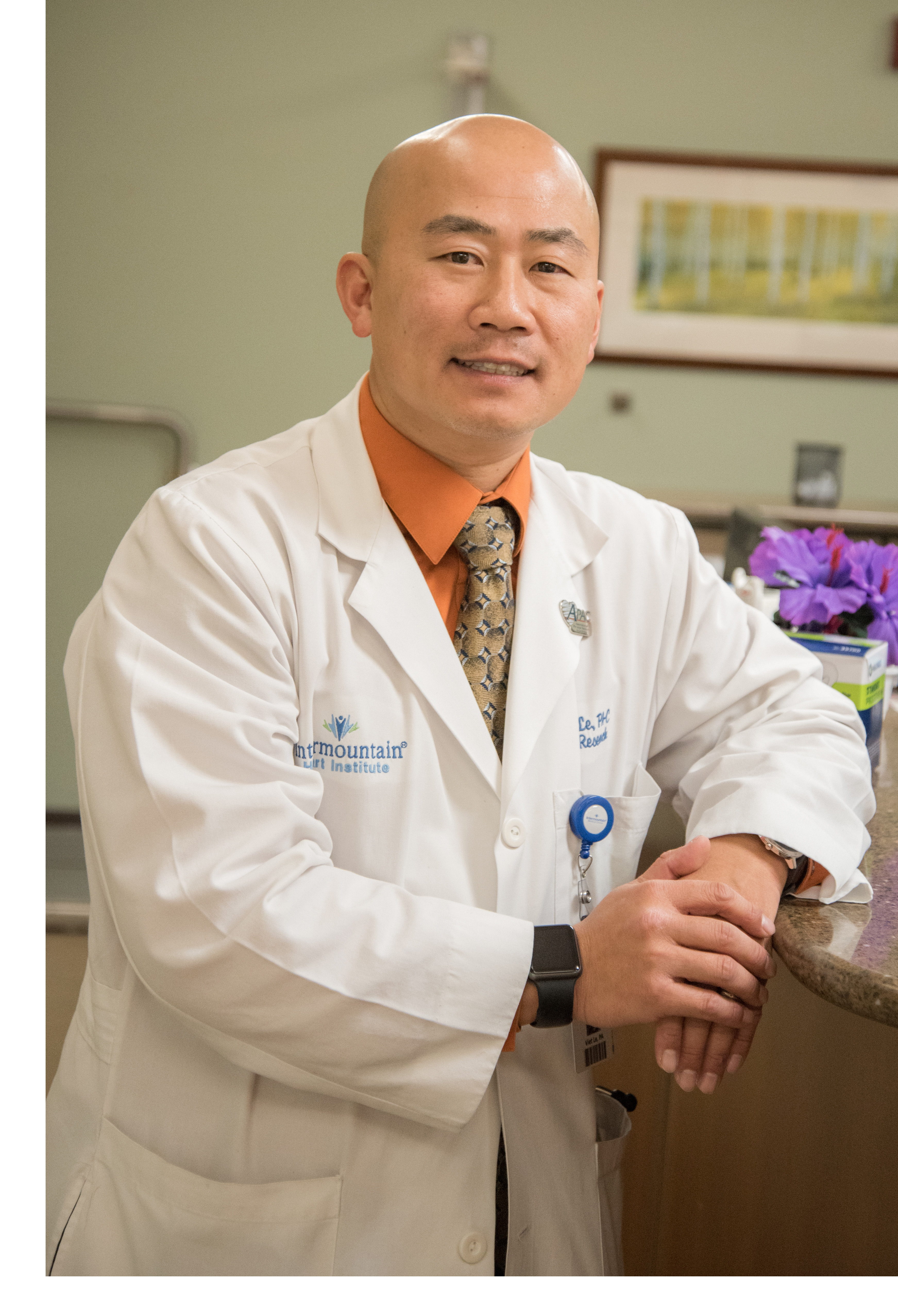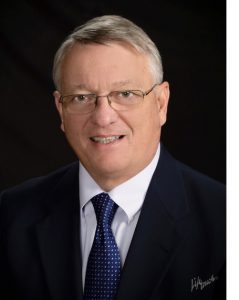Cardiology PAs Get to the Heart of the Matter
Celebrate American Heart Month in February
February 2, 2018
By Hillel Kuttler
A 42-year-old man, a non-smoking triathlete in excellent shape, entered the Bronx, New York’s Montefiore Medical Center’s emergency room in December 2002, with cardiac symptoms. Despite being young and healthy, a cardiac catheterization demonstrated significant heart-artery blockages. A double-coronary-artery bypass graft was done, during which PA Joseph Tommasino provided post-op care.
Today, the man is in “relatively good health” and maintains an active lifestyle, said Tommasino, the chairman and assistant dean of Touro College and University System PA Program’s northeast division and immediate past president of the Association of PAs in Cardiology.
Improving a patient’s life is “the amazing thing about cardiology and medicine,” added Tommasino.
February is designated as American Heart Month and is an appropriate time to take stock of PAs’ contributions in cardiac care.
Heart disease is the leading cause of death for both men and women in the United States, according to the Centers for Disease Control and Prevention (CDC). Nearly 610,000 Americans die of heart disease each year. More than 2,600 PAs practice in cardiology and 3,150 in cardiothoracic and vascular surgery, according to a 2016 survey by the National Commission on Certification of PAs, and they are critical in meeting the much-needed demand for high-quality cardiovascular care. Cardiovascular PAs diagnose, treat, manage acute and chronic care, coordinate complex surgical care, manage pacemakers and defibrillators, harvest vein grafts and assist in surgery, conduct research and much more.
Amy Simone, clinical director of Piedmont Heart Institute’s Marcus Heart Valve Center, in Atlanta, is one of a growing number of PAs leading the way in multidisciplinary teams of valve and structural heart disease specialists. As more cardiovascular surgeries are performed less invasively by cardiologists, PAs are involved in coordinated teams providing specialized and comprehensive care, with better results for patients.
Simone, president of the cardiology association, seeks opportunities to educate patients on decreasing their chances of heart attacks and strokes. Through social media, the group will offer daily tips in February to help people reduce their risk. Throughout the month, Simone will wear a lapel pin on the job. It depicts a red dress. Simone wants the pin to prompt questions and a discussion of heart disease in women.
“I encourage all providers, patients and supporters of this movement to wear the pin and rally around women fighting this devastating disease,” she said.
PA David Lizotte, executive director of the Association of PAs in Cardiovascular Surgery, says, “It’s important to acknowledge February as American Heart Month because [cardiac disease is] still a big killer of Americans each year.”
* * *

Disty Pearson works at Boston Children’s Hospital Heart Center as a PA for adult survivors of pediatric congenital heart disease. Nearly all her patients, Pearson said, have undergone heart surgery since they were newborns; one person has experienced eight open-heart surgeries.
Pearson, like many of her PA colleagues who bring vast clinical and cardiovascular experience to patient care, spent 11 years in cardiac surgery and seven years in cardiology before beginning, 19 years ago, to care for adult congenital heart disease (ACHD) patients.
Approximately 20,000 people with congenital heart disease turn 18 every year, thus graduating into the population of those with ACHD – on top of the estimated 1.3 million ACHD patients currently, Pearson said. The “huge … and growing population” of Americans with ACHD, she explained, results from medical advances and increased rates of successful surgeries and treatments that enabled the survival of those who wouldn’t have lived, or lived as long, previously. They confront health challenges that patients in previous generations didn’t.
“Now that they’ve survived to adulthood, they have the full cadre of issues to be treated: irregular heartbeat, issues with their lungs because of multiple operations in their chest and issues with their kidneys. Some have only one ventricle, which can cause liver issues and issues with the veins in their legs,” Pearson said.
Despite the growing number of patients with ACHD, there is a shortage of adult congenital cardiologists to care for them. PAs like Pearson are among those meeting the needs of people with complex cardiovascular conditions, many with comorbidities and other issues.

Aaron Morton is almost the opposite of Pearson. A PA in cardiac surgery and critical care, Morton assists in the operating room on valve repairs, coronary bypasses, cardiac trauma, thoracic surgery, harvesting of hearts and lungs and heart transplants – “everything except congenital,” he stated.
“It’s incredibly challenging. I may be biased, but some of the patients we have been privileged to take care of are the sickest of the sick,” said Morton, who works at Atlanta’s Emory Healthcare. “It’s incredibly rewarding to take someone who’s in such severe heart failure, or a lung patient who can barely get off the couch, and so quickly change the physiology – to go from a nonfunctioning organ to a functioning one. It’s a massive swing,” he said.
Morton called his work in organ transplants “thrilling,” but said the challenge continues in caring for such patients in recovery, to give them “the best opportunity to stay alive.”
He added: “It takes a lot of close monitoring to get [post-transplant] patients through the thick of it.”
Viet Le works in yet another area of heart care, on the cardiovascular research team at Intermountain Medical Center Heart Institute, near Salt Lake City, Utah. Le conducts clinical trials of devices and pharmaceuticals – a “natural extension of what I do clinically,” he said. He’s now involved in an image trial that measures the progression of plaque nine and 18 months following a baseline CT scan for those taking Omega 3 versus a placebo.
Le said he “fell into” the job once he decided to return to cardiology after shifting to occupational medicine and is “pleasantly surprised at how fulfilling” it is.

“In research, you’ve moved beyond helping one patient to helping thousands of patients if you improve the knowledge base,” said Le, who continues practicing clinically one day a week. “As a PA, I get to walk in both worlds.”
Gregg Munson remembers when few PAs practiced in cardiac surgery.
That was during what Munson called “the golden era for heart surgery,” when coronary bypasses first could be performed safely, beginning in the early 1970s. As more patients became eligible for cardiothoracic surgery, and as surgical procedures evolved, there was an increased need for PAs to provide surgical care in the operating room. As Munson explained, PAs were also needed to care for patients before and after surgery while physicians were in the operating rooms.
After graduating from the University of Alabama-Birmingham’s PA Program in 1975, Munson landed a job at Pennsylvania’s Geisinger Medical Center – the hospital’s first PA in cardiac surgery. Munson helped to prove that “a PA is valuable, that he/she can do things that would’ve taken a physician away from the operating room,” he said.
The role of PAs in cardiovascular care continues to grow and evolve. An American College of Cardiology policy statement acknowledged the significance of PAs and team-based care for treating cardiovascular disease. Because of PAs’ education, training and experience, the demand for cardiovascular PAs continues to increase. As Munson says, “there are not enough of us to go around.”
Being a cardiology PA can be challenging, but the gratification in saving someone’s life can be great, Munson said. PAs in cardiovascular medicine need to be able to perform well when the stakes are high.
“Every day’s a Super Bowl,” said Tommasino, a Boston native and a fan of the New England Patriots, who will be playing on Feb. 4 in professional football’s championship game. “You go in and win one for the patient.”
Hillel Kuttler is a freelance writer. Contact him at [email protected].
Thank you for reading AAPA’s News Central
You have 2 articles left this month. Create a free account to read more stories, or become a member for more access to exclusive benefits! Already have an account? Log in.



